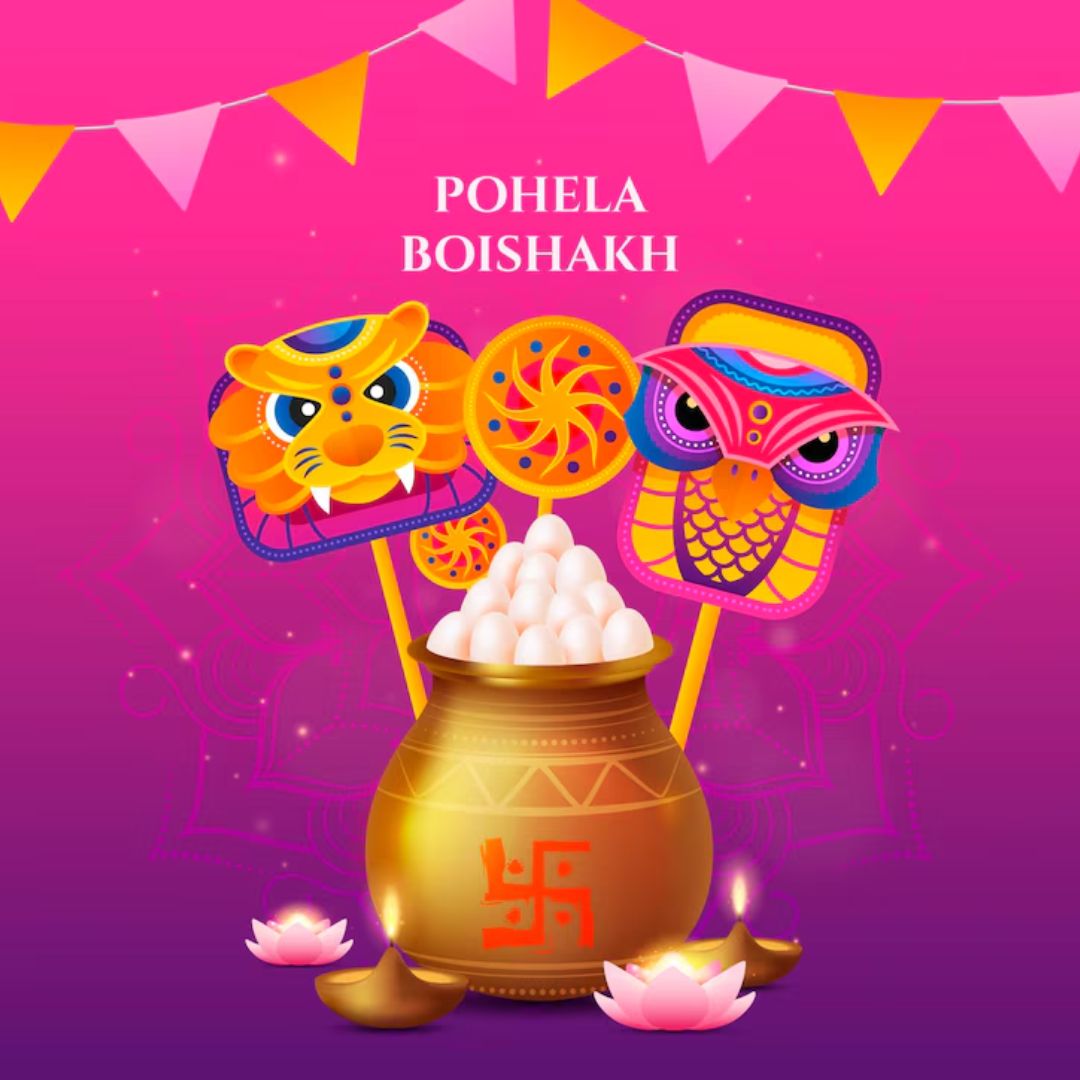- By Kashish Rai
- Sun, 13 Apr 2025 01:02 PM (IST)
- Source:JND
Pohela Boishakh 2025: The Bengali Nabo Barsho marks the onset of the Bengali New Year and the Spring season. Pohela Boishakh is celebrated on the first day of the Baishakh month in the Bengali Solar Calendar. On this sacred day, people offer prayers to Lord Ganesh and Goddess Lakshmi, seeking their blessings for prosperity and happiness for the coming year. This day is considered highly auspicious for beginning new ventures. This year, Pohela Boishakh or Bengali New Year will be observed on 15th April 2025.
Check out all the significant details about the date, timings, significance and rituals for Bengali Nabo Barsho or Pohela Boishakh below:
Pohela Boishakh 2025: Date And Sunrise Time
- Pohela Boishakh 2025 Date: 15th April 2025, Tuesday (Bengali Era 1432 Begins)
- Sankranti Moment on Pohela Boishakh 2025: 03:30 AM, 14th April 2025
- Sunrise: 05:19 AM, 15th April 2025
- Sunset: 05:53 PM, 15th April 2025
Pohela Boishakh 2025: Significance
Pohela Boishakh marks the harvest season in West Bengal and people celebrate the Bengali New Year by offering heartfelt prayers to Lord Ganesha and Mata Lakshmi for blessings. After offering prayers, the day is considered auspicious for starting new business ventures and clearing old monetary debts.
Introduced by Mughal Emperor Akbar in 1584, the Bengali Calendar combines the Hindu Solar Calendar with the Hijri Lunar Calendar. Initially, the purpose of this calendar was to collect taxes but it has since become an integral part of Bengali culture in the present times.
Today, Pohela Boishakh is celebrated with great enthusiasm by the Bengali community, marking the beginning of the Shubh Nabo Barsho and the harvest season.

Pohela Boishakh marks the Bengali New Year or Shubho Nabo Barsho as per the Bengali Solar Calendar. (Image Source: Freepik)
Pohela Boishakh 2025: Rituals
The celebration of the Pohela Boishakh begins with people gathering to witness the sunrise. It is believed that watching the rising Sun on this day is highly auspicious. Prabhat Pheris are also organised on this day. Women wear garad sarees with traditional white and bright red borders. They additionally wear gold jewellery and white pearls. Men don traditional kurtas and dhotis.
Traditional Bengali folk songs and dances are performed on this day. Women prepare lavish meals at home consisting of rice, fish, traditional vegetables and an array of sweets. Traditional colourful rangolis are also made at home, adding to the auspiciousness of the festival. People meet and greet their family, friends and relatives on this day and enjoy delicious meals.
(Disclaimer: This content includes advice providing generic information only. It is in no way a substitute for qualified spiritual or astrological opinion. Always consult a specialist for more information before adopting any measures.)

